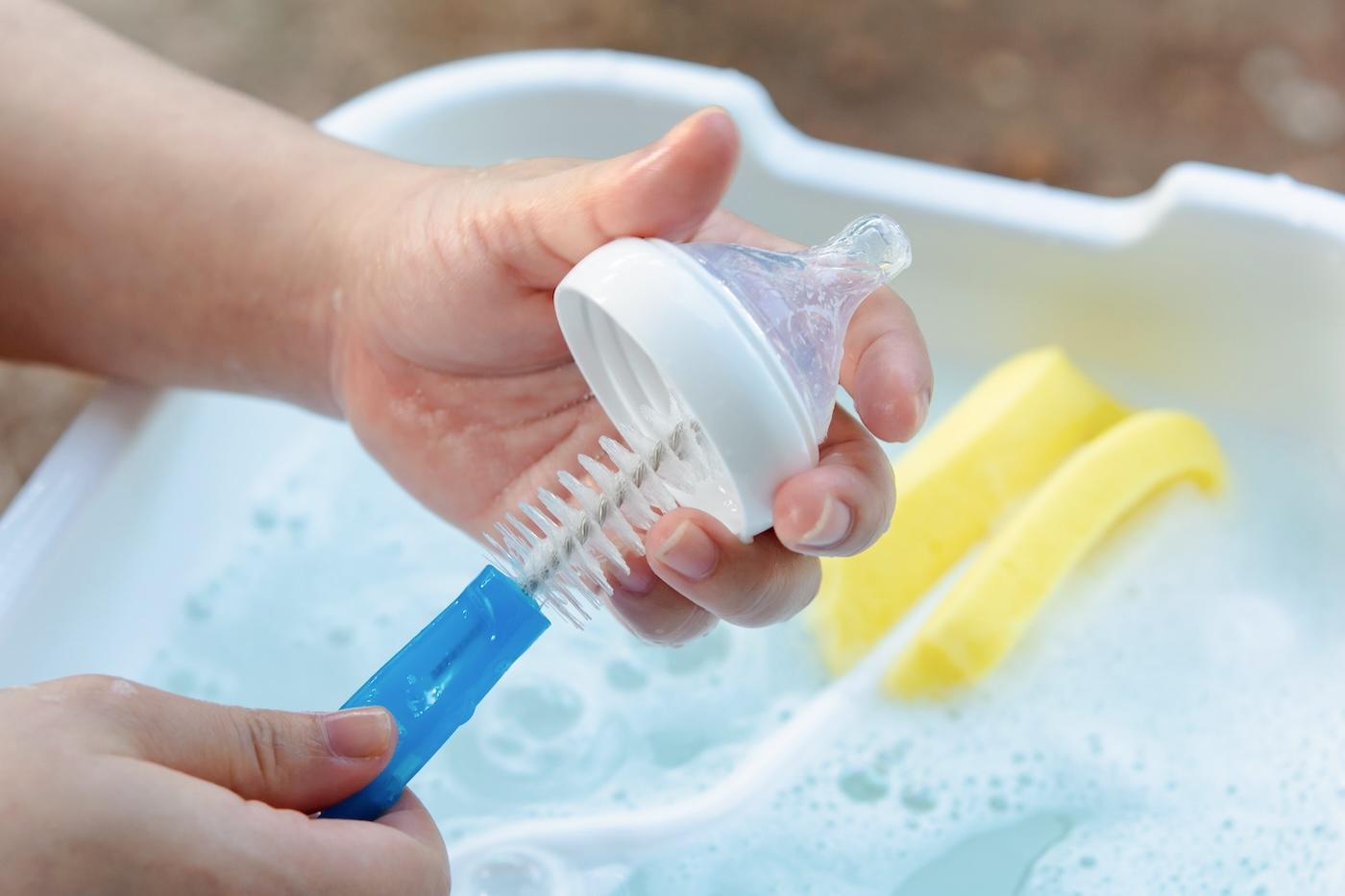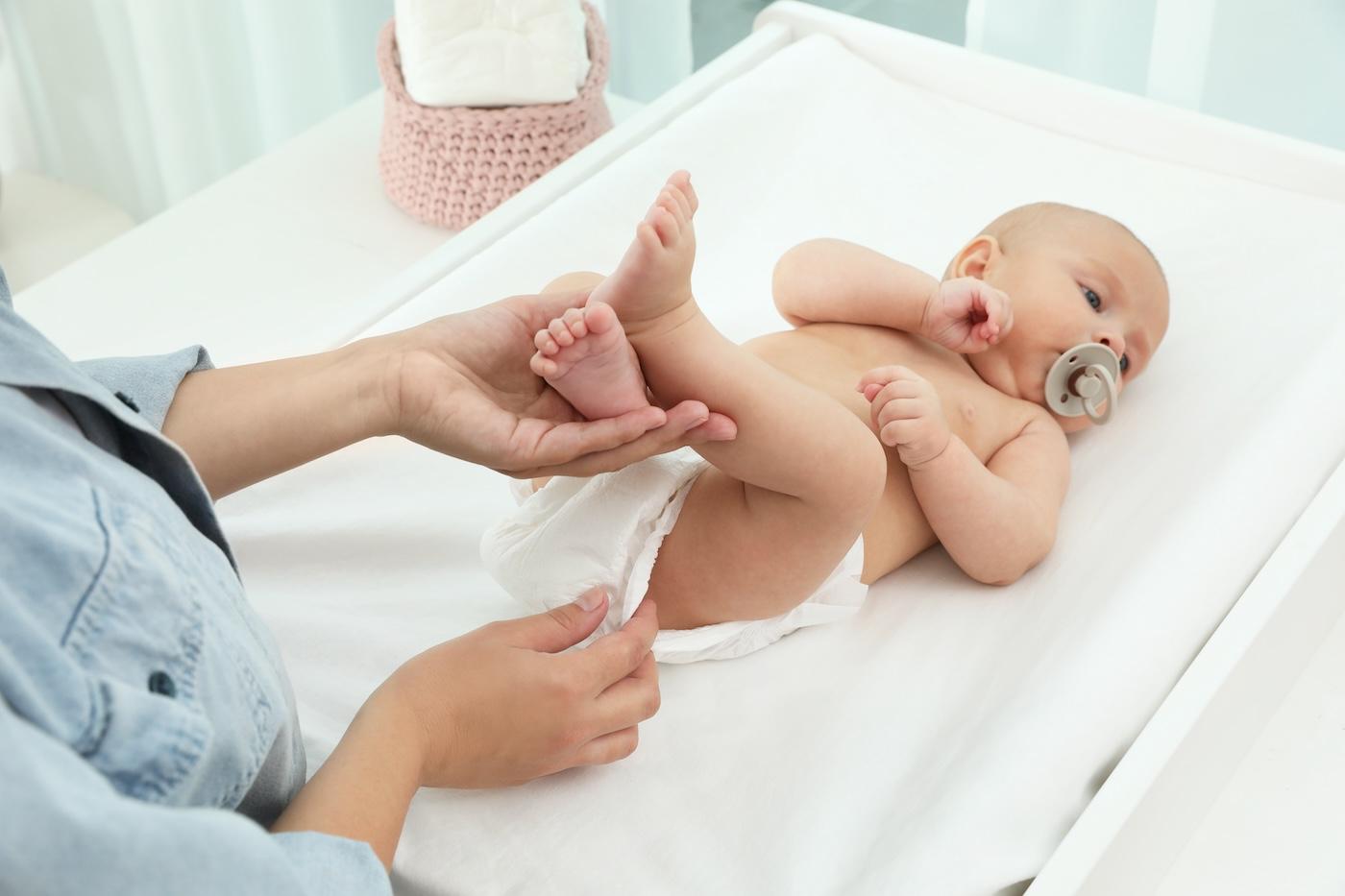BABY
9-Week-Old Baby Milestones
We think of “tweens” as those kiddos on the cusp of their teenage years. But the truth is that your baby is “in between” two real stages right now, too!

Written by
Dr. Harvey Karp

We think of “tweens” as those kiddos on the cusp of their teenage years. But the truth is that your baby is “in between” two real stages right now, too!
Those drowsy, fussier newborn days are just starting to be seen in the rear-view mirror and down the road, after a couple of small turns, is a new period filled with fun, silly, drooling, talkative, squirmy days. So, where does that put you now? In a sweet spot where you still enjoy lots of snuggles while also getting a glimpse of the grins you’ll treasure in the days up ahead!
Your baby is still tender and vulnerable to infections, but is definitely bigger and stronger. With your footing more firmly beneath you, you may be yearning for some family adventures or social outings.
If those excursions involve car seats, many parents find that a seat that also securely snaps into the stroller makes the car-to-adventure transition easier. Don’t panic if your little one dozes off while you’re driving. However, please don’t fall into the dangerous trap of keeping your sleeping baby in the car seat once you return home. As comfortable as your little one may look, many sleeping babies die in their car seat when their heavy head rolls forward—choking off the windpipe. Transitioning from the car seat to the bassinet or crib might rouse your baby a bit, but using white noise, swaddling, and bassinets like SNOO help 9-weekers resist waking up and gives them a chance to practice their self-soothing skills.
Your 9-Week-Old Baby’s Development
Around this point, your baby’s brain is working to connect some new dots! At 9 weeks, babies can already recognize familiar visual patterns as well as repeated sounds and actions.
Your baby has already learned to widely open the mouth when a breast or bottle is within reach and is starting to figure out things like, “if I bring my hand to my mouth, I can suck on it.” They’re even intently watching our lip movements when we sing a familiar song. Recognizing patterns is lots of fun and forms the foundation for all the learning to come (from social skills to algebra!).
9-Week-Old Baby Milestones
At your baby’s 2-month check-up, you probably discussed developmental milestones. All babies develop at their own rates, but it’s good to be familiar with the normal timing of these milestones to enjoy every day, like you are watching the opening of a beautiful flower. (And of course, to be tipped off to any concerns.) Note: When a baby is born prematurely, doctors always adjust the timing of the milestones to the baby’s corrected age.
Some of the big milestones to keep on your radar include smiling at people, looking around for a parent, turning the head toward sounds, making goo-goo ga-ga sounds, holding the head up for longer periods during tummy time, and making lots more movements with the arms and legs.
By the end of the third month, most babies will complete the 2-month milestones listed below. Of course, babies develop at different rates—some may race ahead, and some may take their time. If you have any concerns, don’t hesitate to bring them up with your pediatrician.
2-Month Milestone Checklist
By around the two-month mark, your baby may…
- Smile when you talk or smile at them
- Calm when spoken to or picked up
- Look at parent(s)
- Seem happy to see you when you approach
- Make sounds other than crying
- React to loud noises
- Watch as you move
- Look at a toy for several seconds
- Hold head up when on belly
- Move both arms and both legs
- Briefly open hands
9-Week-Old Baby Sleep
Your 9-week-old is still likely logging 13 to 14 hours total sleep in a 24-hour period. At this age, your baby’s wake windows are still around one to two hours…though you may find they’re consistently closer to two hours now. Bedtime might be shifting earlier (around 9pm), and while they still may need to wake to feed, they could clock stretches as long as five to eight hours at night.
As your baby approaches 3 months, there’s more rhyme and reason to nap times. For most babies, parents can expect three daytime naps: morning, mid-afternoon, and perhaps an evening catnap, too.
Sample Sleep Schedule for 9-Week-Old Babies
There’s a range of what could be considered “normal” sleep at this age—so please take the below with a grain of salt! This is just one example of what your little one’s schedule might look like.
- 6am: Wake up
- 7:30–9:30am: Nap #1
- 11:30am–1pm: Nap #2
- 3–4pm: Nap #3
- 6–7pm: Nap #4
- 8:30pm: Bedtime routine starts
- 9pm: Bedtime
- Midnight: Dream feed
9-Week-Old Baby Sleep Tips
Here are a few tips to help promote good sleep habits:
- Dark and noisy is good. Use blackout shades and good white noise in your baby’s room. (Learn why darkness is your baby's sleepytime friend.)
- You don’t have to be rigid about nap times, but for most babies—and parents—having a fairly consistent schedule of naps help establish a happier and healthier rhythm.
- Try to put your baby down to sleep before they get overtired. Sometimes, overly tired babies get crankier, more wound up, and have a harder time staying sleep. By the time you see lots of yawns and glassy-eyed stares, you’re already late.
- Limit daytime naps to 1.5 to 2 hours at a time, especially if your baby is snoozing three times a day. Many will nap longer, but that usually makes them wake more at night.
- Starting a nap right after a feeding is fine. I know people hear all sorts of warnings about not letting babies fall asleep after eating. But let’s be real, babies naturally fall asleep when they have a full belly of warm milk…just like we get sleepy after a big meal.
< Your 8-Week-Old Baby | Your 10-Week-Old Baby >
Disclaimer: The information on our site is NOT medical advice for any specific person or condition. It is only meant as general information. If you have any medical questions and concerns about your child or yourself, please contact your health provider.
SHARE THIS ARTICLE
MOST LOVED
Sleepytime Sidekicks












